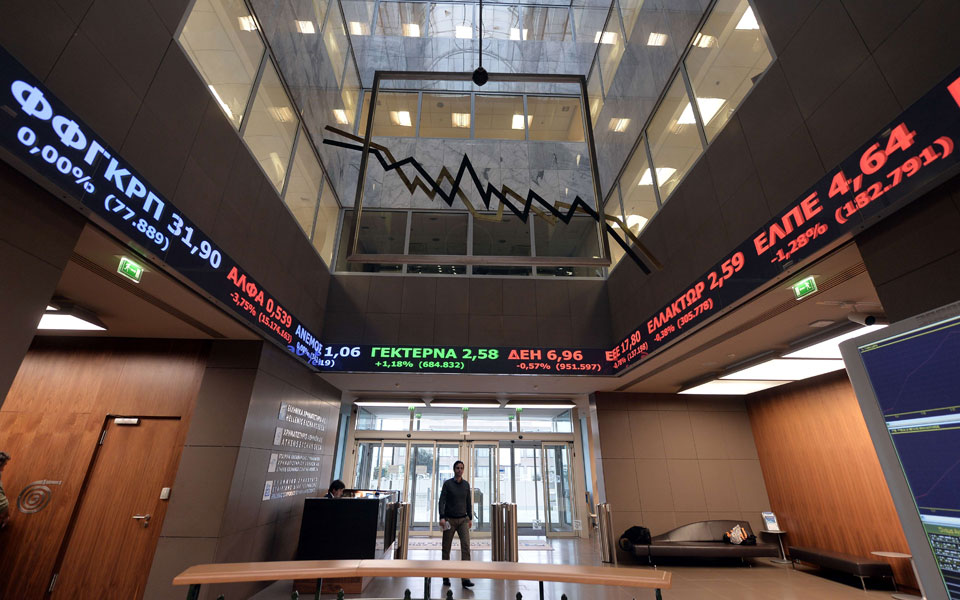Key period for fiscal consolidation

Parliament has passed the first omnibus bill to unlock the next disbursement of bailout loans and is likely to do the same with a second list of reforms in the next few weeks. At the same time, the recapitalization of Greek banks is entering the final stretch and there are signs the recession may be shallower this year compared to earlier predictions. However, the markets seem to be taking a different view of the situation with bonds rallying and stocks languishing. Their stance points to the challenges Greece faces ahead.
As expected, the ruling coalition of SYRIZA and Independent Greeks on Friday passed the first set of prior actions set out in the third memorandum of understanding (MoU) ahead of the disbursement of a 2-billion-euro loan. Their deputies will have to assume the political cost of painful measures that have brought down three governments since 2010. They will be tested again in the coming weeks as the government will have to table a second, much more politically sensitive list of reforms in Parliament to help release an additional tranche of 1 billion euros in bailout funds and pave the way for the completion of the first review of the program. Many of the MPs will come under pressure from their constituencies, i.e. farmers, but it is our belief that the government will be able to pass the second bill as well.
In the meantime, an increasing number of analysts are revising their predictions about the country’s economic performance this year. They seem to agree that the economy has shown greater resilience compared to what they expected after the imposition of capital controls. They therefore see a smaller decline in economic output in the third quarter which, added to the recorded advance in the first half of 2015, leads to a downwardly revised recession of 1.2 to 1.8 percent for the year. The new figures compare favorably with the 2.3 percent decline forecast in the new economic program but miserably with the 2.9 percent rise cited in the 2015 draft budget a year ago.
Although signs of a smaller-than-predicted recession are welcome, the picture emerging from available figures about public finances is still hazy. Revenues exceed expenditures excluding interest on public debt in the first eight months of the year, according to general government data released by the Finance Ministry. The primary surplus stood at 2.6 billion euros from 2.4 billion in the January-August period in 2014. It is well known that this is due to the undershooting of state expenditures in order to more than offset lower revenues.
However, a good deal of revenues that had to be collected during this period, i.e. ENFIA (the Single Property Tax) have been pushed back. Therefore, it is not clear what will happen with the revenues at the end of the day. The fact that households and corporations will have to pay a lot in taxes in a relatively shorter period of time makes things more complicated. Nevertheless, one can make a simple calculation by adjusting for the additional 2.1 billion euros in state arrears to the private sector accumulated during January-August. It is noted that state arrears came to 5.1 billion euros at end-August from 3 billion at end-2014. If one makes the adjustment, the primary surplus of the general government falls to about 500 million euros. This is not bad if one takes into account that the third bailout program targets a primary deficit equal to 0.25 percent of the GDP in 2015 or about 450 million euros. So, Greece appears to have some room to manuever and perhaps do better than the target.
Bond markets appear to have taken notice. They have also been encouraged by signs of political stability and the government’s willingness to conform with the MoU requirements, including the passing of key bills and the recapitalization of the banking sector. Therefore, it is no surprise that they have driven the 10-year bond yield down to 7.86 percent, a level last seen in early February 2014. The yield has collapsed from the high of 19.44 percent recorded on July 9 and has eased considerably from 8.50 percent just prior to the general elections on September 20. In addition, the sensitive two-year bond yield dropped to 8.92 percent on Friday from 11.39 percent just before the elections and 57.7 percent on July 9.
In other words, the bond markets have taken a more sanguine view of Greek public finances, perhaps helped by the ECB’s ongoing bond buying program (QE).
On the other hand, investors on the Athens stock market appear to have taken a much more cautious view. The general stock index is down 21 percent in the last 12 months and about 9 percent in the last six months. It eased about 1 percent in the last month or so. Undoubtedly, the sharp losses of bank shares ahead of the recapitalization have weighed heavily. Nevertheless, the stance of market participants towards the Athens bourse does not exude the optimism of the bond market. This may reflect the market’s doubts about Greece’s economic prospects since stock prices discount future earnings which are more difficult to realize in a sluggish economy.
All in all, the bond and the stock markets seem to be taking a different view on Greece. The bond market discounts fiscal consolidation while the stock market appears to predict slow economic growth rates ahead. The two stances are not incompatible up to a point. However, the fiscal side will feel the pinch if the economy does not grow or does so slowly in the medium-term.
[Kathimerini English Edition]





